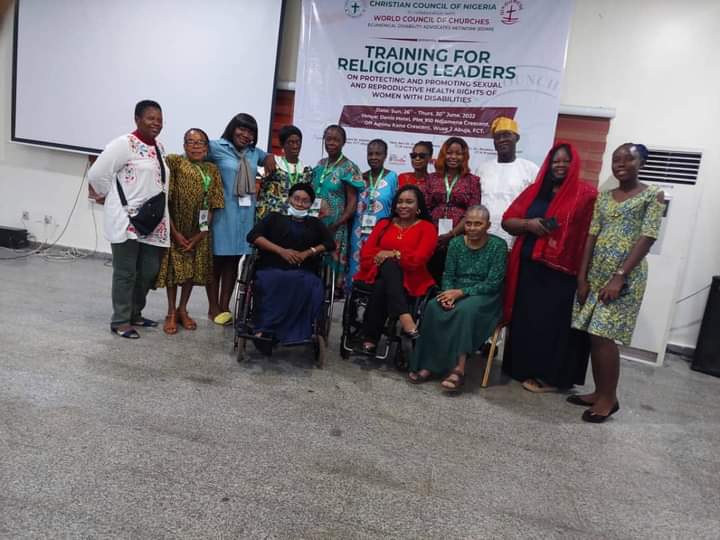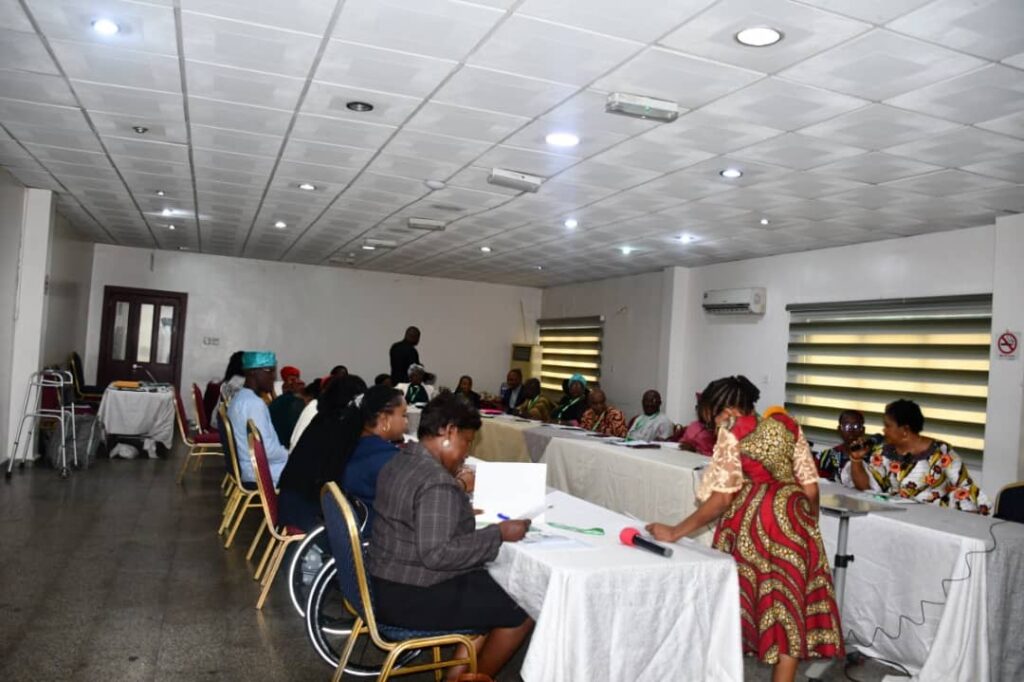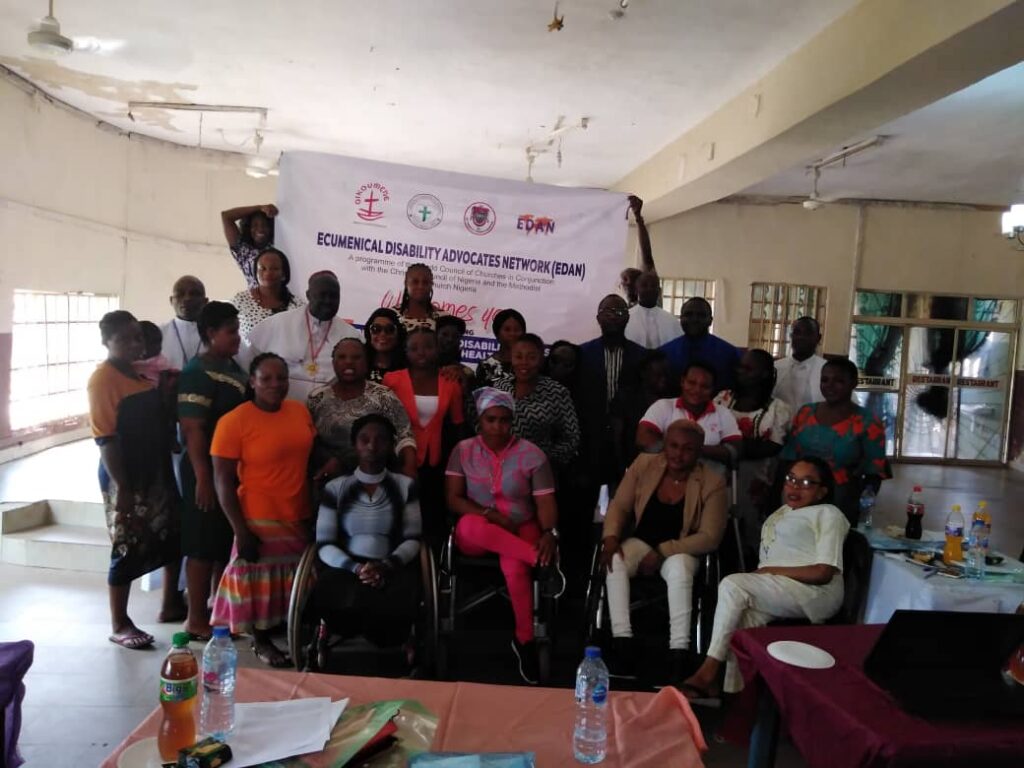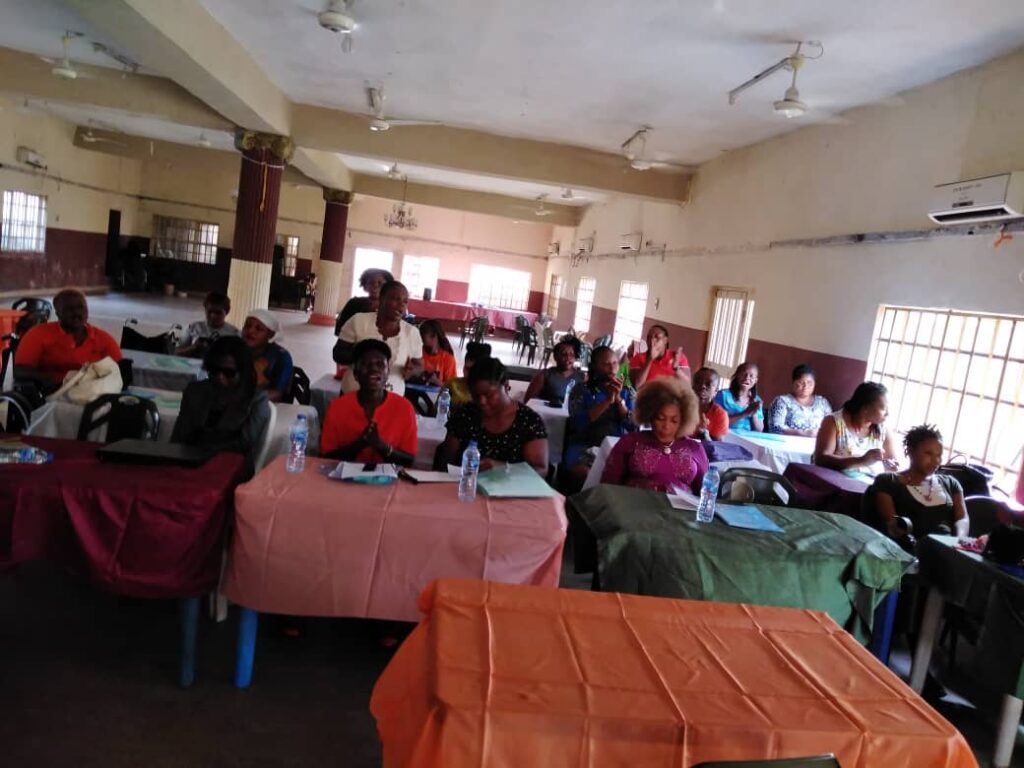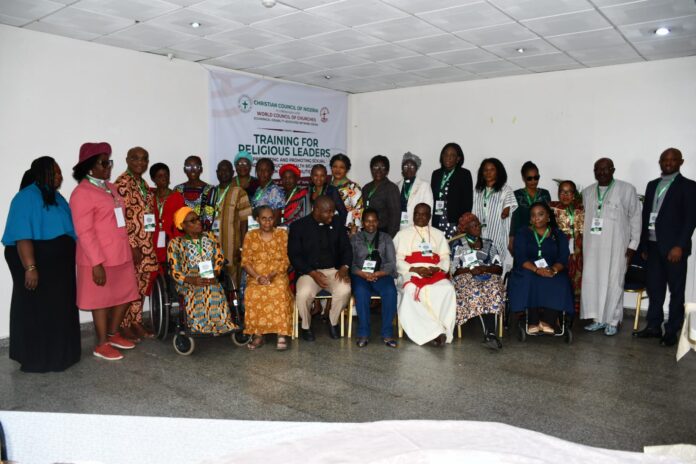The Ecumenical Disability Advocates Network (EDAN), a programme of the World Council of Churches (WCC) that operates in the WCC’s broad programme area on Unity, Mission and Ecumenical relations partnered with the Christian Council of Nigeria and the Methodist Church Nigeria in implementing a project entitled ‘Empowering Women with Disabilities on Sexual and Reproductive Health Care’ in Nigeria. The project aim at increasing access to information and services on sexual and reproductive health care for women with disabilities in Nigeria; and building the capacity of church leaders in Nigeria to protect and promote the sexual and reproductive health care and rights of women with disabilities. Two trainings were held for women with disabilities in two locations. Also training was held in Abuja where church leaders were empowered on Protecting and Promoting Sexual Reproductive Health and Rights of women with disabilities.
Celine Osukwu of Divine Foundation for Disabled Persons who is also the Nigerian focal person for Ecumenical Disability Advocates Network (EDAN) organized and coordinated the trainings in Nigeria. The first of the two trainings slated for women with disabilities was held in Umuahia, Abia state from 9 to 12 March 2020. The second phase of EDAN’s training on sexual reproductive health care for women with disabilities slated to hold in Enugu was held IN Abuja from 26 – 28 June 2022. Women with disabilities from the grass root communities in Ebonyi and Enugu who were targeted for the second phase of training were bought to Abuja.
A total of 45 women with different types of disabilities were empowered with information on their Sexual Reproductive Health and Rights as well as on the existing national and international laws and policies on rights of women with disabilities regarding their sexual reproductive health rights.
50 church leaders were trained on protecting and promoting sexual and reproductive health of women with disabilities. The trained leaders agreed to play the following roles:
- Promote Inclusion
- Provide Enabling Support/Facilities for PWDs
- Provide a framework for the regular support of PWDs
- Incorporate Care and Support of PWDs into Teaching
- Transform Traditional Beliefs around Disability
- Share knowledge on SRHR of women and girls with disability through regular dissemination of information using all church organs and structures (eg women’s fellowship, men’s fellowship, youth fellowship.
There was also an interface of church leaders from member churches of CCN with women with disabilities. Women with disabilities shared their lived experiences of treatments received from churches, hospitals and homes. Women with disabilities made the following recommendations to church leaders
- Help Women with disabilities who participated in this training step down training on SRHR to other women with disabilities in the parishes, communities, dioceses, Arch-dioceses.
- Build the capacity of other persons with disabilities especially the women to also be agents raising awareness and advocates of rights of PWDs to Sexual and Reproductive Health
- Organize community programs to educate women with disabilities and their families on sexual reproductive health rights and care.
- Incorporate SRHR issues into marriage course curriculum and into other women’s and men’s programs in churches and into other leadership training activities of churches.
- Escalate the knowledge on / news about the importance of SRHR in our churches by educating leaders, priests, elders, heads of organisations and decision making bodies about SRHR, and the need to be more inclusive in carrying out activities.
- Engage in School awareness raising campaigns on SRHR for students in churches’ schools, theological institutions especially students with disabilities.
- Carry Massive Campaigns on disability and sexual reproductive health rights in Churches, Community based Organisations, at Synod meetings / Conferences, Committee meetings, etc.
- Churches should include the needs of PWDs in their structures, such as hospitals, church buildings, schools, etc. We need both financial and structural accessible hospitals.
- Engage in Media partnerships and publicity using church bulletins, Press Conferences, Radio, Television, Print and all media channels.
- Talking and continuing the conversations on SRHR in Conventional meetings, during Evangelism and all activities of the churches
- Raise Champions on SRHR for WGWDs and collaborators from churches
- CCN should have Disability Awareness Week for Churches.
- Network, establish and sustain partnerships with parents and siblings of PWDs, Organizations of Persons with Disabilities, Traditional rulers, other religious leaders and organizations, MoH, Public office holders, Development organizations Civil Society Organizations and relevant stakeholders.
- Churches should form probonos to help on legal issues around rights of PWDs
- Priests should review and change their perceptions about disability and change their preaching on disability.
- Incorporate SRHR issues into marriage course curriculum and into other women’s and men’s programs in churches and into other leadership training activities of churches.
- Escalate the knowledge on news about the importance of SRHR in our churches by educating leaders, priests, elders, heads of organisations and decision- making bodies about SRHR, and the need to be more inclusive in carrying out activities.
- Engage in School awareness raising campaigns on SRHR for students in churches’ schools, theological institutions especially students with disabilities.
